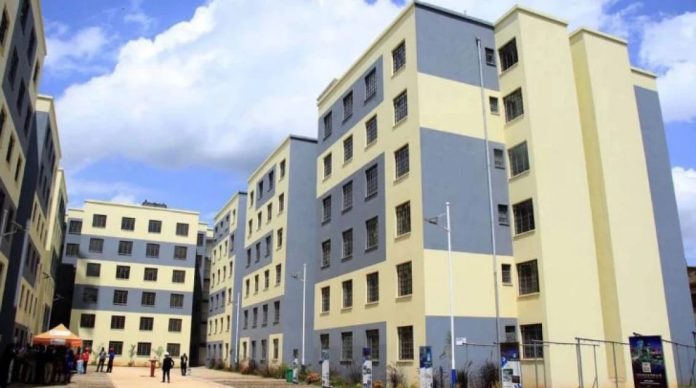The government has admitted that it has fallen way short of an annual target of 200,000 housing units that it had claimed it would build when the controversial housing tax burden was added onto Kenyan pay slips.
According to the Principal Secretary at the State Department for Housing and Urban Development Charles Hinga, the government has only managed to complete 3,171 housing units so far.
“40,000 more housing units are at advanced stages and 161,911 housing units in total are ongoing,” Hinga claimed. “The government envisages to build 200,000 units every year to bridge the gap on housing.” He then went on to claim that another 700,000 were in various stages of planning.
This admission came amidst concerns on whether these 3,171 were actually initiated by the current administration under the programme or whether they were launched by the previous administration.
At the same time, Hinga’s latest numbers come barely four months after he claimed that the government could not achieve the target of 200,000 housing units per year without borrowing additional funds.
This was despite the government parking billions of unused funds that have been collected through the controversial housing tax in treasury bills.
“We are targeting 200,000 units per year. If you use a conservative estimate of Sh2 million per unit, that is about Sh400 billion annually. The housing tax brings in at most Sh72 billion, so we must leverage that,” Hinga had said in June. “We are partnering with investors to bring in private capital and use the levy as an off-take guarantee.”
READ MORE: Man deported by Uhuru gets multi-billion Ruto affordable houses deal
Hinga had claimed that the government had collected Sh120 billion as at June but had signed contracts worth Sh300 billion. He claimed that in 2026, the government would be going into the market to raise about Sh129 billion through a Sukuk bond and REITS listed on the Nairobi Securities Exchange.
Ironically, the government through President William Ruto also announced in yet another shocking twist that funds from the housing tax would be diverted to build markets and nursery schools, responsibilities that are currently under the county governments.









